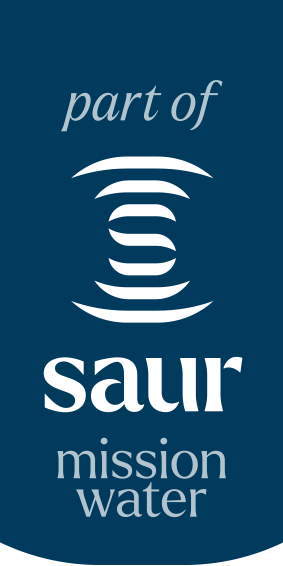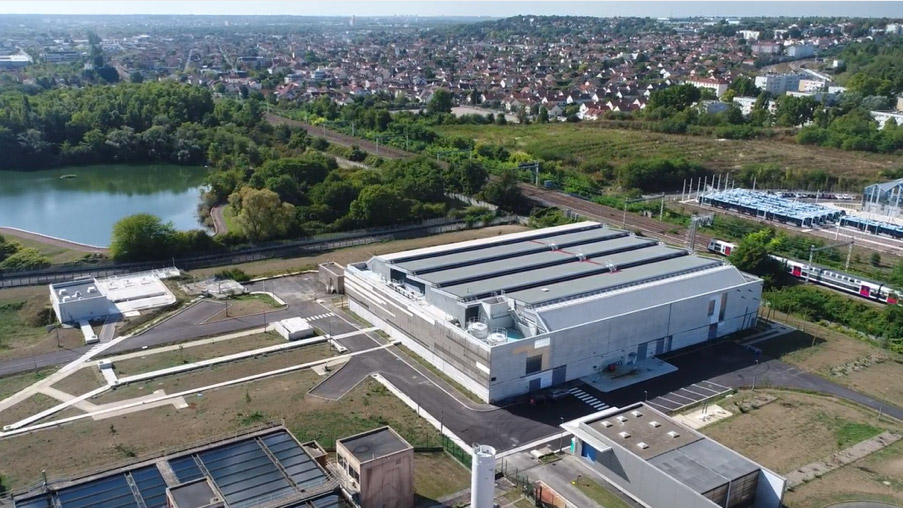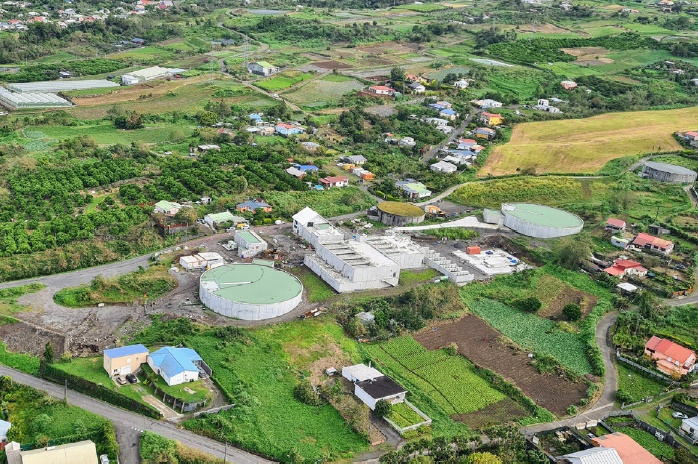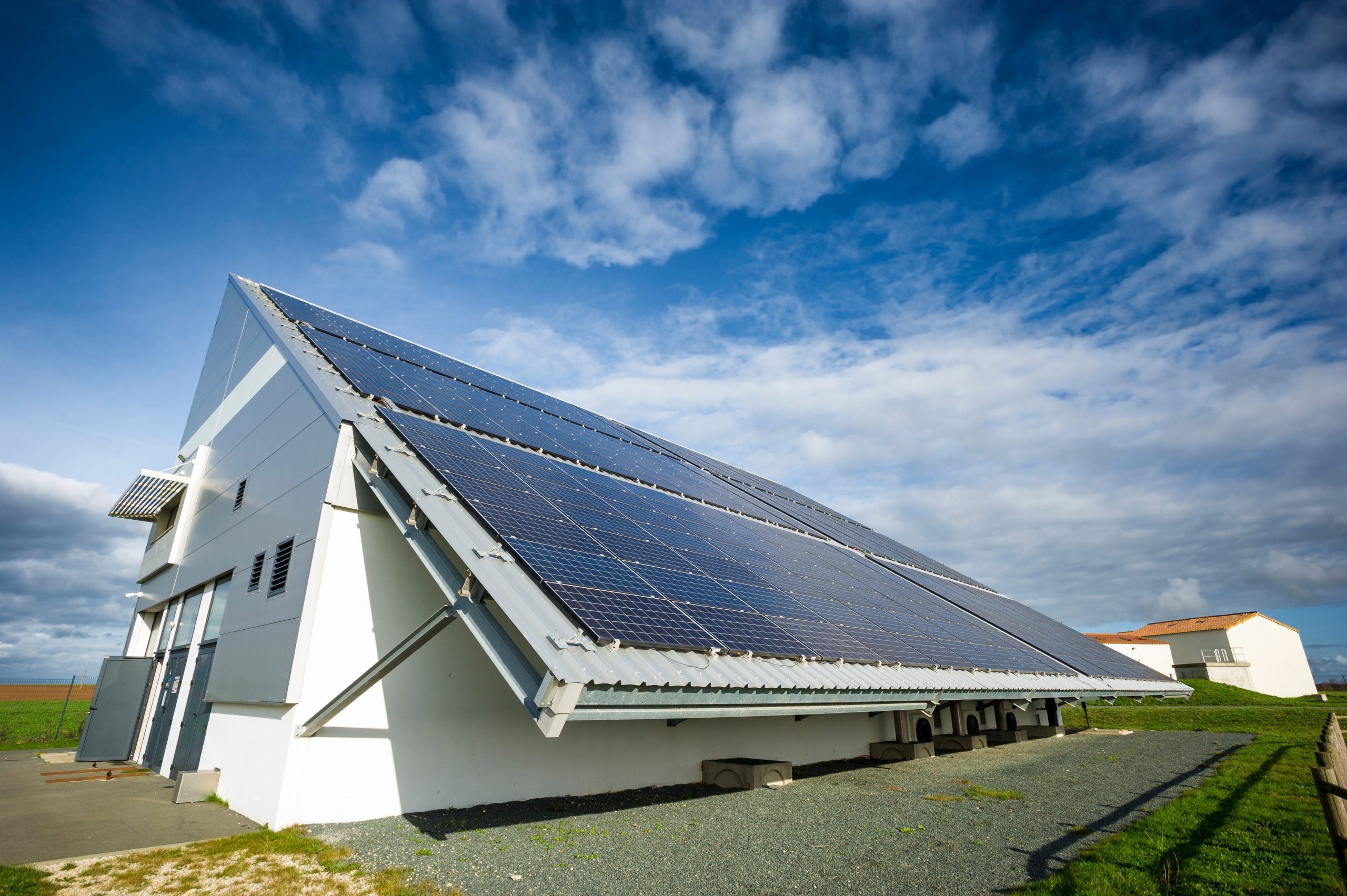- Drinking water
Saint-Brieuc (Côtes-d’Armor)
An innovative solution to Saint-Brieuc's drinking water challenges
The existing drinking water production plant was reaching the end of its useful life and could no longer meet growing demand and regulatory requirements. This led Saint-Brieuc Armor Agglomération and SDAEP22 to commission the construction of the Croix-Cholin plant. Supplied by water from the Gouët-Saint-Barthélemy dam and sized to produce 1,850 m3/hour of drinking water (equivalent to the consumption of 150,000 inhabitants), this facility is conceived to meet the territory’s water quality challenges.
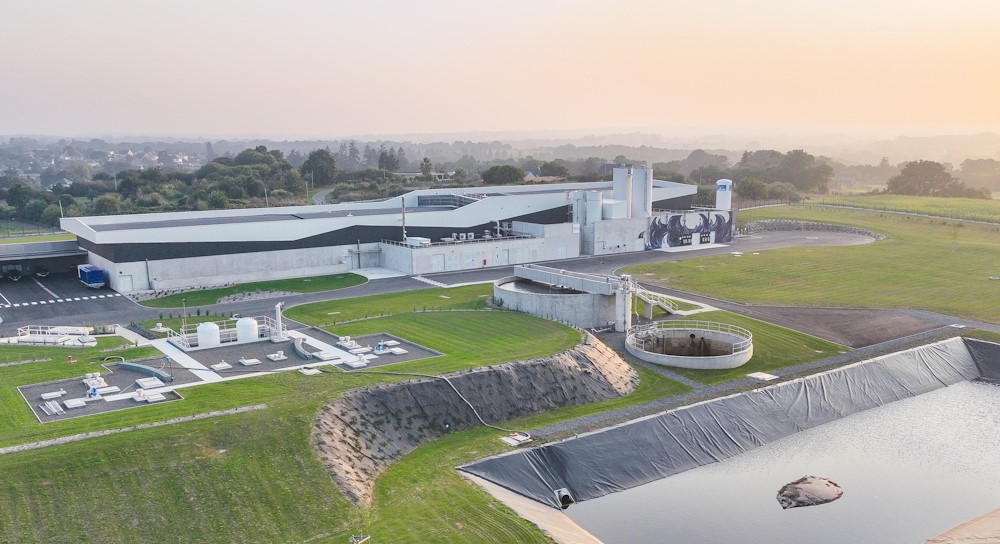
The challenges
- Improve and secure the distribution of drinking water to the inhabitants of the Saint-Brieuc area.
- Modernize the treatment process ahead of regulatory changes in micropollutant treatment.
- Provide a solution to the development and growth of algae in raw water.
- Improve drinking water production efficiency in the treatment process.
Our solutions
In anticipation of future regulatory changes, the plant implements a particularly innovative multi-barrier treatment process. At each stage of the treatment process, technical and environmental solutions have been designed and implemented to optimize performance.
Immediately after pre-treatment, a purification stage using the patented Aéroflux® process effectively eliminates the algae found in the water from the Gouët dam. Aéroflux® thus guarantees impeccable water quality and minimum losses, even during eutrophic summer periods when algae remain at the surface of the lake.
The plant also uses the Saur group’s patented Carboflux® process to remove pesticides. Designed for particularly polluted lake or reservoir waters, Carboflux® continuously treats a broad spectrum of micropollutants. Combined with ozonation, this treatment guarantees Saint-Brieuc’s inhabitants top-quality water.
Finally, we have been working with BIM methodology from the design phase all the way through to delivery of the plant. Thanks to the digital mock-up, we can ensure precise coordination between all those involved in the project, thus securing the entire works. Furthermore, BIM facilitates future operation, guaranteeing optimal maintenance throughout the plant’s lifecycle.
Benefits
- Water and energy savings.
- Reactivity to variations in water quality.
- Compliance with RE2020 and future European standards.
- Discreet and harmonious architectural design and landscaping.
